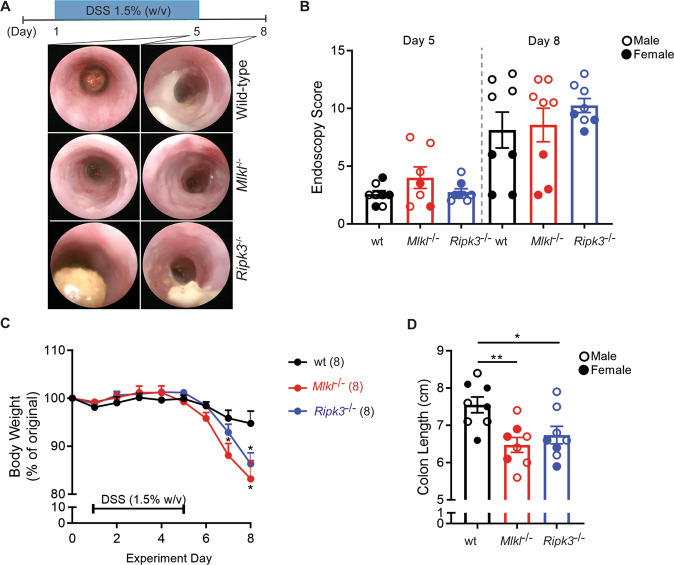Fig. 1. Loss of MLKL or RIPK3 results in increased weight loss in a mouse model of colitis, but only in some cohorts.
a Schematic illustration of the DSS-induced acute colitis model with representative endoscopy images of mice of the indicated genotypes. b Serial murine endoscopic index of colitis (MEIC) scores for mice of the indicated genotypes on day 5 and day 8 of the DSS-induced acute colitis model. Littermate wild-type mice (Mlkl+/+) were used as controls. N = 8 mice per genotype. Data are presented as mean ± SEM. Male and female mice are indicated. There is no significant difference between genotypes or sexes on Day 5 (power of 0.413). There is no significant difference between male mice on Day 8; for female mice wt vs Ripk3−/− mice *p = 0.02, Mlkl−/− vs Ripk3−/− mice *P = 0.02 (ANOVA, power of 0.181). c Daily weight loss, presented as a percentage of the starting weight, for mice of the indicated genotypes. N = 8 mice per genotype. Data are presented as mean ± SEM. *P < 0.05, Student’s unpaired t test, power of 0.347. d Colon length for mice of the indicated genotypes. N = 8 mice per genotype. Data are presented as mean ± SEM. *P < 0.05, **P < 0.01, Student’s unpaired t test. Male and female mice are indicated. There are significant differences between female wt vs Ripk3−/− mice *p = 0.04 (t test, power of 0.665), and between male wt vs Mlkl−/− mice *p = 0.04 (t test, power of 0.926).

